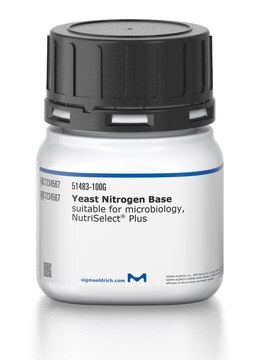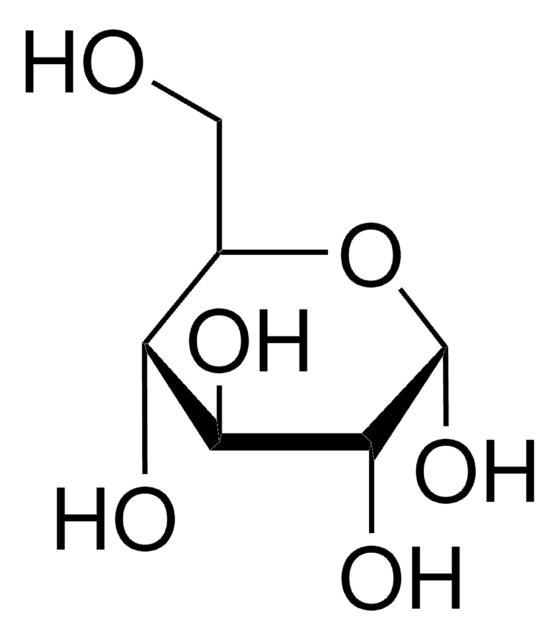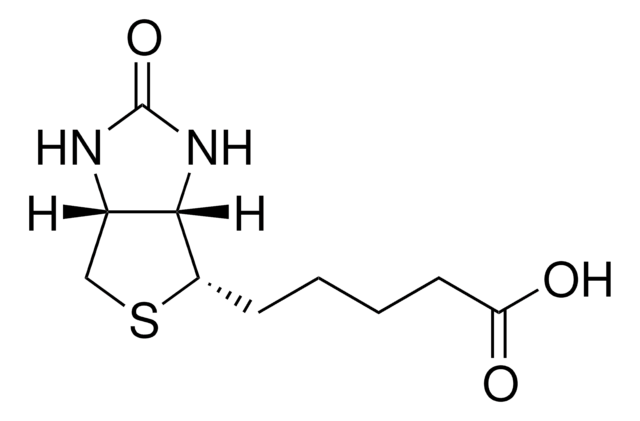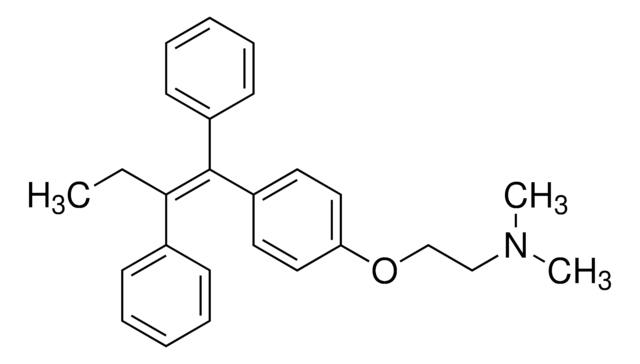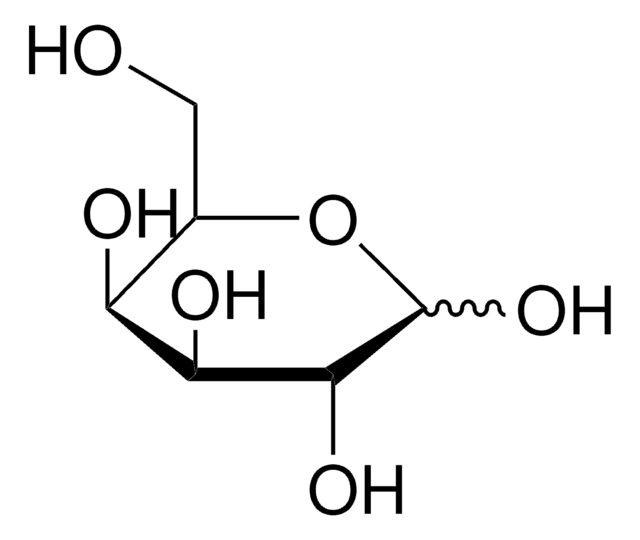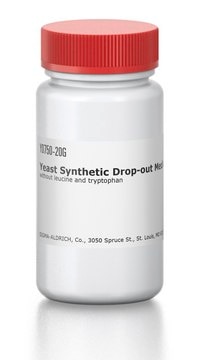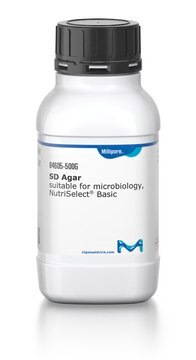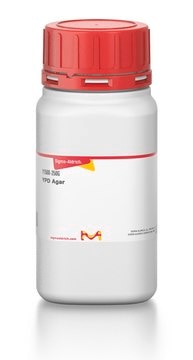Y1250
Yeast Nitrogen Base With Amino Acids
Non-selective yeast growth medium
Synonym(s):
ynb with amino acids
About This Item
Recommended Products
grade
for molecular biology
Quality Level
sterility
non-sterile
form
powder
technique(s)
microbiological culture: suitable
pH
5.3-5.5(0.67% solution)
application(s)
microbiology
storage temp.
room temp
suitability
nonselective for Candida spp.
nonselective for Pichia spp.
nonselective for Saccharomyces spp.
nonselective for Zygosaccharomyces spp.
Related Categories
General description
Application
- in the ZYP-31 media preparation for E.coli
- in synthetic dextrose (SD) medium to evaluate the influence of nitrogen source
- to culture Candida utilis for the production of 13C-labeled yeast extract as internal standard
- in the preparation of imaging medium
Suitable for use in classifying yeasts based on carbon requirements. Also suitable for general growth of yeasts with the addition of a carbon source (usually glucose).Yeast nitrogen base with amino acids is a satisfactory nitrogen source for general growth media. Contains all essential nutrients required for the growth of yeasts except carbohydrate.
Components
Nitrogen Sources:
Ammonium sulfate, 5.0 g/L
Amino Acids:
L-histidine, 10 mg/L
DL-methionine, 20 mg/L
DL-tryptophan, 20 mg/L
Vitamins:
Biotin, 2.0
Calcium pantothenate, 400
Folic acid, 2.0
Inositol, 2.0 mg/L
Nicotinic acid, 400
p-Aminobenzoic acid, 200
Pyridoxine HCl, 400
Riboflavin, 200
Thiamine HCL, 400
Trace Elements:
Boric acid
Copper sulfate
Potassium iodide
Ferric chloride
Magnesium sulfate
Sodium molybdate
Zinc sulfate
Salts:
Potassium phosphate monobasic, 1.0 g/L
Magnesium sulfate, 0.5 g/L
Sodium chloride, 0.1 g/L
Calcium chloride, 0.1 g/L
Reconstitution
Dilute the 10x concentrated stock to a 1x working solution by adding 100mL concentrated stock to 900mL sterile water.
Storage Class
11 - Combustible Solids
wgk_germany
WGK 3
flash_point_f
Not applicable
flash_point_c
Not applicable
ppe
Eyeshields, Gloves, type N95 (US)
Certificates of Analysis (COA)
Search for Certificates of Analysis (COA) by entering the products Lot/Batch Number. Lot and Batch Numbers can be found on a product’s label following the words ‘Lot’ or ‘Batch’.
Already Own This Product?
Find documentation for the products that you have recently purchased in the Document Library.
Customers Also Viewed
Articles
Technical Article on yeast media. Yeasts are eukaryotic microorganisms whose genomes have been comprehensively studied and some have been sequenced.
Protocols
Yeasts are considered model systems for eukaryotic studies as they exhibit fast growth and have dispersed cells. Yeast cultures can be grown, maintained, and stored in liquid media or on agar plates using techniques similar to those for bacterial cultures.
Our team of scientists has experience in all areas of research including Life Science, Material Science, Chemical Synthesis, Chromatography, Analytical and many others.
Contact Technical Service

